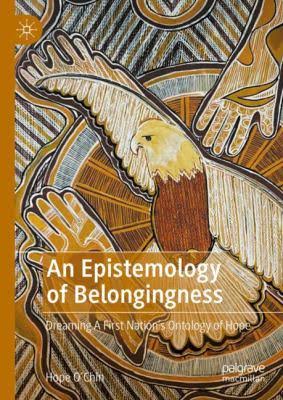Few voices resonate as profoundly as that of Dr (Aunty) Hope O'Chin. Renowned Kabi-Kabi, Wakka-Wakka, Koa, Gugu-Yalanji Elder, educator, and artist, Dr O'Chin unveils Epistemology of Belongingness: Dreaming A First Nation's Ontology of Hope, a transformative exploration into the heart of Australia's First Nations truth, voice, recognition, diversity, and respect.
Dr O'Chin's work offers readers a fresh lens through which to explore Australian First Nations culture and learning. Passionately, she introduces the concept of an Ontology of Dreaming Hope for Australians, challenging entrenched ontological propositions and advocating for frameworks centred on Indigenous knowledge systems, philosophies, histories, and cultures.
Central to her narrative is the role of art in cultural renewal and understanding. Drawing upon her extensive research, she highlights how art serves as a vital pedagogy, enabling the preservation and adaptation of Aboriginal culture amidst ongoing challenges. Through her insightful analysis, Dr O'Chin invites both Indigenous and non-Indigenous peoples to engage with the triumphs and resilience of Aboriginal communities throughout history.
In Epistemology of Belongingness, Dr O'Chin confronts the complexities of Australian history and politics, acknowledging past injustices while offering a vision for a future founded upon cultural inclusion and mutual understanding. With her visionary suggestions for a national curriculum rooted in Kabi Kabi knowledge, Dr O'Chin charts a course towards a more equitable and harmonious Australia.
As Epistemology of Belongingness: Dreaming A First Nation's Ontology of Hope makes its way into the hands of readers, it promises to be an indispensable resource for scholars, educators, policymakers, artists, and all those committed to fostering a more equitable and inclusive society.


